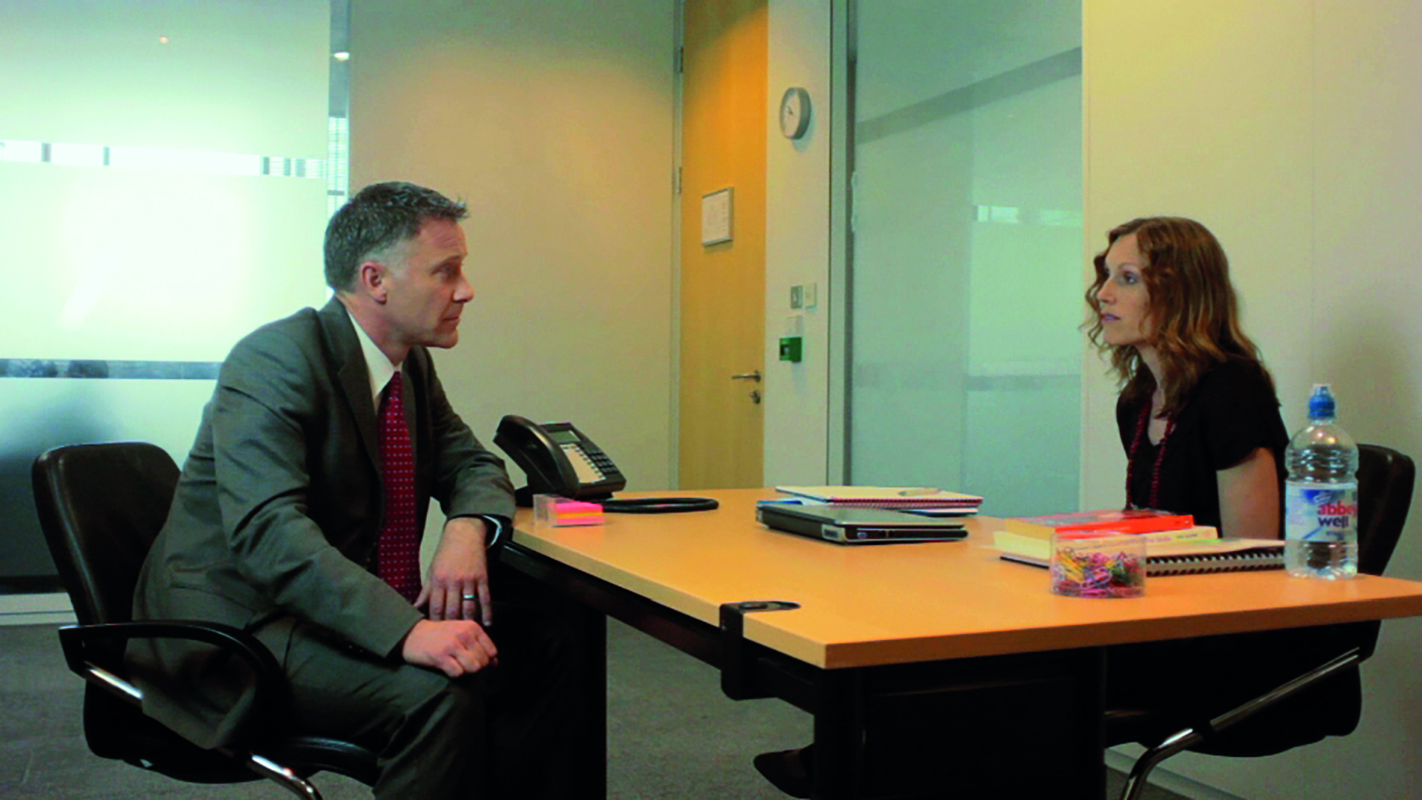Turn your training crisis into a drama – that’s what SMEs to FTSE 100 companies are doing to get better results. We asked Mark Huggins, MD of Corporate Drama, to explain how the return on training investment can be significantly increased if you make a scene of it.
“Let me ask you a question” Huggins starts. “If I was to give you the keys to Lewis Hamilton’s Mercedes F1 car and say ‘go on, take her for a spin’ I think I know what your reaction would be. Rational fear - the firm belief that you’d crash would mean you’d decline the offer. When it comes to successfully changing your staff’s behaviour it’s exactly the same. Fear of failure stops them from taking action. That great management theory remains in your people’s heads and doesn’t get translated into confident, authentic action.
“I’ve not met a business leader or manager who hasn’t had to face a challenging, uncomfortable conversation. Using professional business actors gives them a chance to practice those conversations, to learn what they naturally do well, and what new behaviours they need to adopt to improve their ‘performance’ during difficult conversations to make them really powerful. The use of role-play can confirm a person’s perception of their own authenticity and enable them to develop more awareness and confidence.”
“So, if role-playing is basically conversational practice, why fork out to get professional actors in? Because they give you the data you rarely, if ever get in life - your communication impact.
“Corporate Drama has been helping business people learn behaviour and communication skills since 1999. All of the actor team are like me - they’re all professionally trained actors and they all have business career experience. We walk the walk and talk the talk. We all understand the many relationship challenges, politics and pressures in today’s organisations.
“If you want evidence of the importance of having managers and leaders with good people skills there’s this statistic: in 2014 the Gallup Organisation surveyed 500 leading global organisations. It discovered that 84% of the time they hired or promoted people who were technically excellent and yet had little or no people management experience or skills. Whenever I think about that statistic I wonder what it’s like to work in their teams, or to be their customers?
“I’m often asked ‘where does this type of experiential learning work best?’. The simple answer is anywhere where business people are communicating with each other. Leadership, customer service, performance management, on-boarding, team-work, coaching, networking, sales, presentations and negotiating are just some of the programmes we regularly work on. And how do we do this? We use a technique called ‘real-play’ in which ask participants to think of a conversation they’ve recently had, or which they are about to have. We give them a simple pro-forma to complete which asks them to describe the person they’re meeting and why they’re a challenge, the Corporate Drama role-player assimilates this information quickly and then we start the practice session. It’s comes over really authentic and that’s what makes it so different from peer-to-peer role-play. The way the actor’s use their skills to recreate the other person is key.
“It’s always a very powerful and revealing learning experience. The participant can stop at any time, normally at the place they find the most challenging. In one memorable instance it was immediately after the person said ‘hello’ - their aggressive facial expression terrified this particular manager! We worked on an assertive approach to the conversation, using the impact feedback from the actor to help the participant understand an authentic approach where their message really landed.
“Some people come to our sessions convinced they’re going to under-go a huge transformation. It’s true, the learning experience is always significant. Yet in most cases what we’re exploring are subtle changes in a person’s communication approach. Take listening for example - most people have heard the theory of ‘active listening’ yet can they do it effectively in the pressure of a challenging conversation? What happens to the other person in the conversation if you’re truly listening actively is a subtle shift in the words, tone, body-language, energy and intention, and that makes all the difference. Having the chance to practice this in a safe yet challenging and very realistic environment, and getting high quality first-person feedback, makes the difference in how the learning sticks – and how it then gets confidently transferred into the workplace.”


